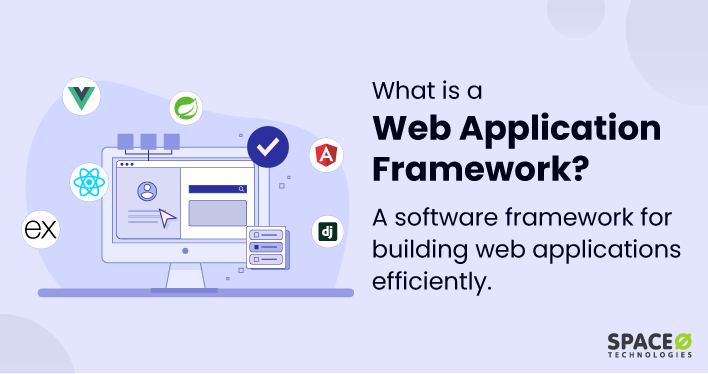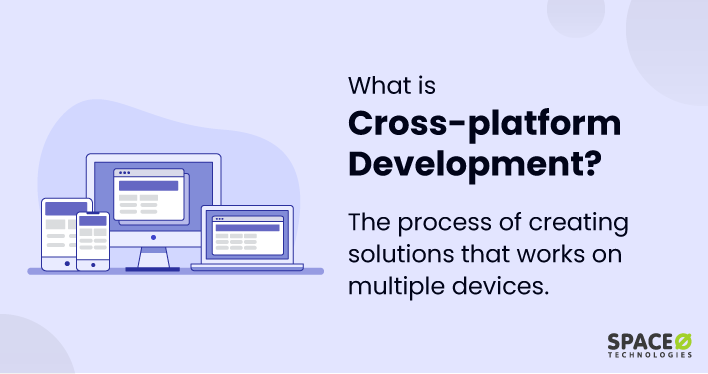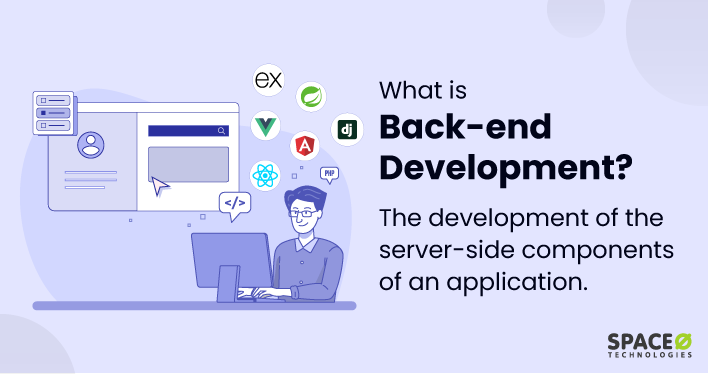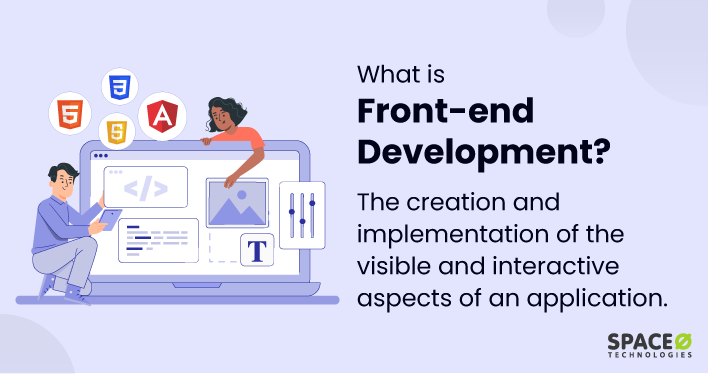Table of Contents
What is a Web Application Framework?
A web application framework is a software platform that provides developers with pre-built tools and libraries to simplify the development of web applications.
For example, Ruby on Rails, Django, Flask, Express.js, Laravel, and AngularJS are some of the popular web frameworks.
A web framework aims to make it easier for developers to build complex web applications by providing a structured approach to application development. Web app frameworks for both front-end and back-end development promote best practices and standardized processes, allowing developers to improve code quality and maintainability. To understand more about these useful tools, explore our list of the top web application frameworks.
Let’s check some of the functionalities that web app frameworks have to offer.
What are the Core Functionalities of Web Frameworks?
Some of the key web framework functionalities vary depending on the type of web app being developed. Here is a table of some of the most common functionalities that most web applications for web app development.
| Functionality | Description |
|---|---|
| User authentication | Verifies a user’s identity and grants access to the application’s resources |
| Database interaction | Provides database access to create, read, update, and delete data from a database |
| Forms and input validation | Ensures that user input is valid and safe to use |
| File uploads | Allows users to upload files, such as images, documents, or videos |
| Search functionality | Allowing users to quickly find information within the application |
| Payments and transactions | Process payments for e-commerce and other transactional applications |
| Social sharing | Allow users to share content on social media platforms |
| Messaging and notifications | Keeps users informed of updates or new information |
| APIs and integrations | Allows other applications or services to interact with the application’s data and functionality |
| Web caching | Stores frequently accessed data in memory or on disk to improve performance |
| URL mapping | Maps URLs to specific resources or views to structure the application’s code |
Since you know the functionalities of a web framework, let’s quickly check the advantages of web frameworks.
5 Advantages of Web Application Framework
Improves Efficiency of Web Development
A web app framework, both frontend and backend frameworks improves the efficiency of the development process by providing web developers with pre-built tools and libraries that they can use to streamline the development process. A web framework can offer faster development times and reduced costs for building web apps.
Standardizes Web Development
Web app frameworks often have standardized conventions and best practices, which can help improve quality while writing code and make it easier for web developers to collaborate. By using a web framework, developers can reduce the risk of errors and inconsistencies in the codebase, improving code quality and maintainability.
Provides Community Support
Popular frontend frameworks and backend frameworks, used in an eCommerce platform, social media network, and content management system, often have large communities of web developers who contribute to their development and offer support to others. This community support can be particularly valuable for new developers who don’t know the coding language or those who need help troubleshooting issues with the framework or associated web applications.
Offers Scalability
Many web application frameworks are designed to scale well, which helps handle large amounts of traffic and data. A web framework can be particularly beneficial for applications that are expected to grow quickly, as they are designed to scale well and handle large amounts of traffic and data.
Improves Security
Web application frameworks often come with built-in security features and practices to help prevent common security vulnerabilities. Implementing proper security measures during web development can help ensure that applications are more secure and less susceptible to attacks.
A web application framework is a powerful tool that can simplify and streamline the web development process. By providing pre-built tools, libraries, and standardized conventions, web frameworks help developers create complex web applications in a more efficient and maintainable way. Some web application frameworks like React Native, Xamarin, and Flutter can also assist in the creation of cross-platform solutions.
Cross-platform allows a web app to be accessed from any device or operating system using a web browser. If you also want to know more about cross-platform development, here is a brief explanation of what is cross-platform development. With the added benefits of scalability, security, and community support, web frameworks are an essential component of modern web development.






